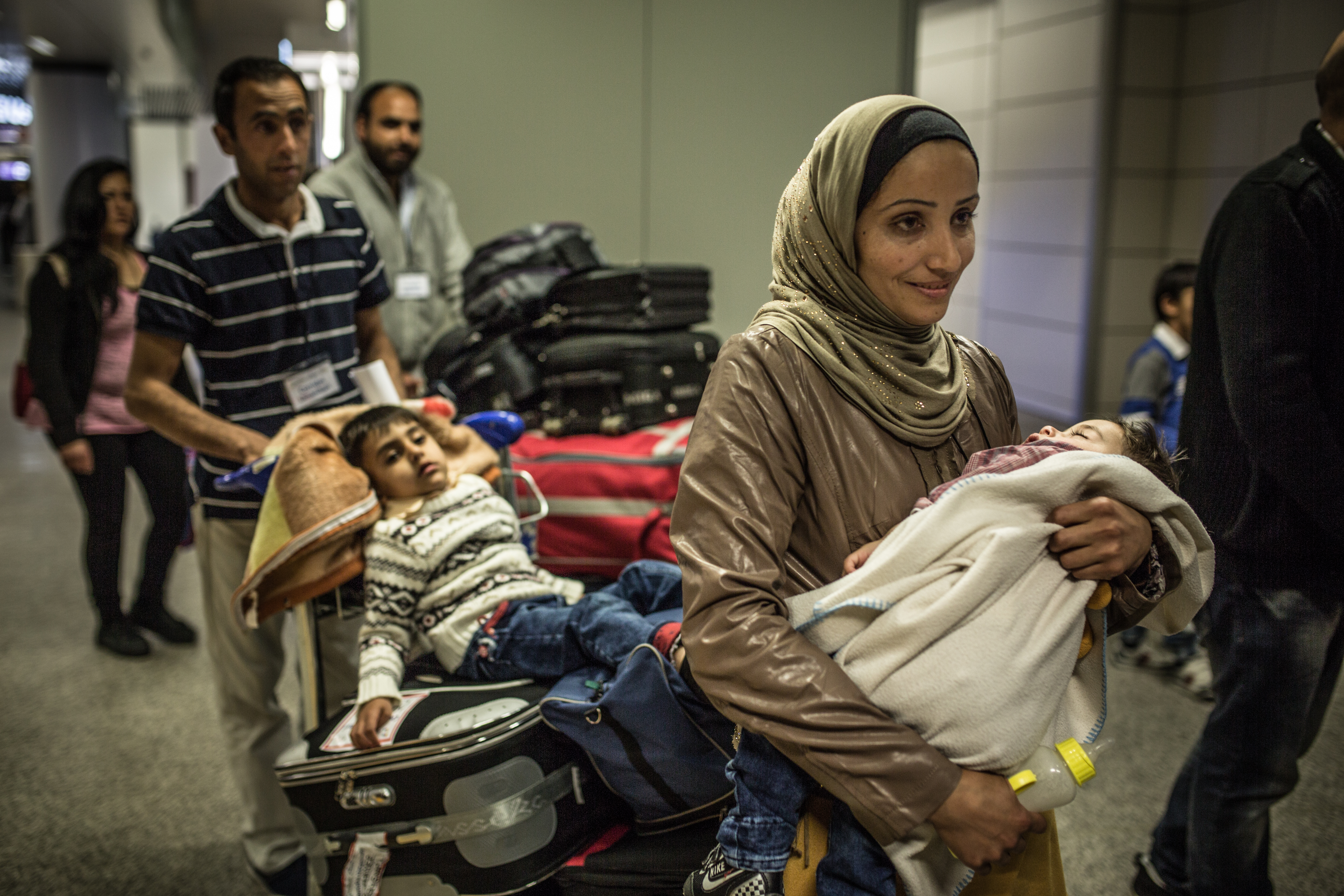- 4 mins read time
- Published: 19th June 2017
Fatem and Khalil: One Syrian family’s journey to Europe
The majority of Syrian refugees who have reached Europe have had to take dangerous, sometimes fatal, journeys across land and sea. But this is a different story, one which shows that there are other ways of providing sanctuary to those fleeing the horrors of war.
Fatem recalls the fear she felt when war broke out in her hometown of Raqqa. “We were living in the heart of the conflict,” she says. “Every time we kissed each other goodnight we thought it could be the last time.” Her husband Khalil couldn’t work after the fighting started. Money became so tight that Fatem, who was expecting their first child, couldn’t even see a doctor. But the final straw came after the birth of their baby boy, Ahmed, and the couple realised that there was no milk in the shops to feed him. ”That was the moment when we clearly realised we couldn’t stay in Syria any more,” says Khalil. He decided to go to Lebanon to find a job and a home – his young family would then follow him. The most precious thing he took with him was a photo album showing happy memories – their wedding, their parents and their beautiful house.

Fatem, and her husband Khalil and their two children arrive in Rome. Photo: Pablo Tosco / Oxfam
Khalil had to sleep on the streets on his first night in Lebanon. It was a sign – nothing in this country would be easy. For four years the family struggled to make ends meet in their adopted home, a small country with the highest number of refugees per capita in the world, and a place where 70 percent of Syrian refugees live below the poverty line. For Khalil, finding work as an electrician, plumber and painter was difficult, so he still had to borrow money to feed his family, which had grown with the birth of baby Mohamed. Their home was a small, dark room in a town in Mount Lebanon, an hour from Beirut. It was cold and the children often got sick.
One day, Khalil learned from a neighbour that there was a way of travelling to Italy, safely and legally, with a humanitarian visa. After much research, the family met with the Italian organisations working on the “Humanitarian Corridors” programme, an initiative which aims to prevent both dangerous journeys across the Mediterranean and human trafficking. At first, Fatem was sceptical –she never thought they would be selected. But after a couple of interviews they got the good news.
Khalil and Fatem couldn’t sleep the night before their flight to Italy. They’d been counting down the days for months, their suitcases waiting in a corner of their tiny home. Torn by their situation, they shed tears of joy and sadness. They were leaving behind those with whom they had spent the past four years – their cousin’s family, who had welcomed them into their home during their first month in Lebanon, and their neighbours, most of whom were Syrian, and who’d also fled their homeland. Above all, they were moving further away from Syria.
The journey took 24 hours, starting in Beirut and ending in the Tuscan town of Cecina. When they arrived, two social workers from Oxfam brought them to their new temporary home – a flat with a garden. The family learned that they would get money for six months to buy food, medicine and other essentials. They would have WiFi in the apartment and get Italian language lessons. And they would receive help in applying for asylum and looking for work. At the end of the six months, the family would be considered self-sufficient.
“I never imagined we would end up living in Italy. I thought the war would only last for two or three years, but the situation just gets worse,” says Khalil, as he tunes into an Arabic television channel to get the latest news from Syria. “I hope people in Europe don’t think we are terrorists or extremists. We are here because we are running away from them, from the conflict.”
Fatem adds: “We want a future for our children. That is why we are willing to learn a new language and adapt to different customs.” When asked if they would like to go back to Syria when the war ends – if they would like this story to end where it began – Fatem replies: “Of course we will go back. But if a long time passes and my children feel established here, we will only go back to visit. The stability of our family comes first.”




